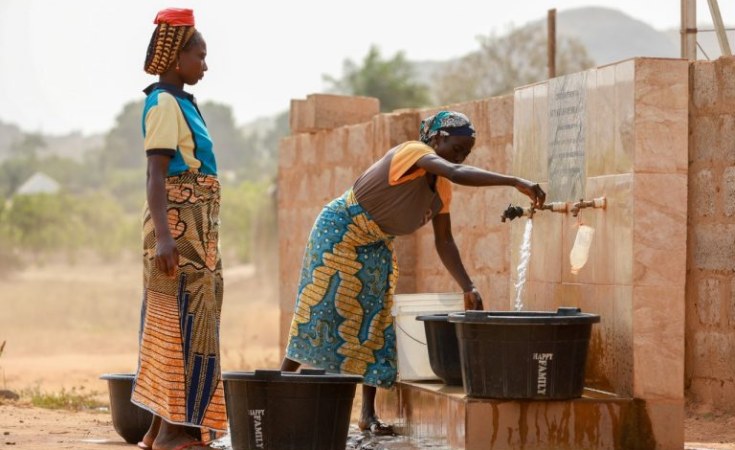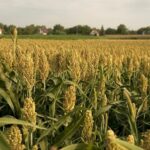For years, residents of Bwari Area Council and its neighbouring communities have grappled with water shortages.
In many households, the daily routine included waking up at dawn to fetch water from boreholes far from home or relying on water vendors popularly known as ‘Mai ruwa,” whose supplies are often insalubrious and expensive.
This reality is now set to change with the recent launch of Lot 1 of a 198-kilometre water pipeline project, announced by Nyesom Wike, the Minister of the Federal Capital Territory (FCT).
With half of the contract sum already released to China Geo-engineering Construction Limited, the contractors, the pipeline project is expected to bring water to Bwari, Ushafa, Jigu, Kuduru, and Kuchuku over the course of 18 months.
Beyond just pipes and pumps, this initiative highlights a significant shift towards sustainable service delivery in Abuja’s satellite towns.
This is not the first attempt to solve Abuja’s water challenges. Over the years, the Federal Capital Development Authority has expanded the Lower Usman Dam treatment plant, which supplies most of the city with potable water. The dam’s capacity was increased to meet the growing population of Abuja, particularly in high-density urban areas.
Meanwhile, the Rural Water Supply and Sanitation Agency (RUWASSA) has been working alongside communities in the Federal Capital Territory (FCT) to provide solar-powered boreholes and hand-pump systems. Across many communities, these efforts have reduced dependence on contaminated streams and unsafe water sources.
What makes the Bwari pipeline project stand out is its ambition: rather than isolated boreholes, it is designed to provide a coordinated, central water supply system, similar to what exists in Abuja’s city centre.
Understanding the impact of the Bwari Pipeline Project
This integration of rural councils into the larger urban network is a deliberate attempt to close the infrastructure gap between the centre and the peripheries.
Across Nigeria, there are already examples of solutions showing what works in the water sector. Small water factories run by community cooperatives have become lifelines for families in some Lagos neighbourhoods, supplying clean water at affordable prices.
Also in Kaduna, solar-powered mini-water schemes are bringing consistent access to rural communities without the high rising costs of diesel generators.
International organisations have played a prominent role. UNICEF and the European Union have supported the installation of motorised boreholes and water treatment units in states like Bauchi and Cross River, ensuring that children and women, who are often the most affected by water scarcity, have safe access.
These models demonstrate that partnerships, innovation and local ownership are key drivers of sustainable water provision. By adopting a large-scale, government-funded model with community benefits, The Bwari pipeline project adds a new dimension to these existing approaches.
How long can this project last? History has shown that many water schemes collapse when communities are not carried along.
In some states, abandoned boreholes stand as reminders of projects that lacked maintenance and accountability structures.
To prevent this, Bwari residents will need to be involved directly in managing the pipeline once it is completed. Local water user associations or committees, trained in basic maintenance, could help sustain and maintain the infrastructure.
Transparency in spending and monitoring will also be important. Civil society organizations and community leaders could play major security roles, ensuring that timelines are met and quality is not compromised.
By combining accountability and local participation, the government can ensure the pipeline does not become just another unfulfilled promise.
Nevertheless, this is notable progress. The Bwari water pipeline project is part of a wide range of national effort to secure one of the most basic human needs.
Combined with ongoing initiatives such as solar-powered boreholes, rural schemes and water stores in other states, it reflects a range of solutions being implemented across Nigeria.
If successful, the project will improve sanitation and also reduce the spread of waterborne diseases and lower household costs, but it will also restore trust between government and communities.
For the people of Bwari, the sound of flowing water from a household tap will mean relief, dignity and opportunity.
For Nigeria, it will stand as proof that when promises are backed with action and communities are at the centre of implementation, the challenge of water scarcity can truly be overcome.
Residents of Bwari Area Council and neighboring communities in Nigeria have been dealing with water shortages for years, relying on distant boreholes or costly, often unsanitary water vendors. However, a new 198-kilometer water pipeline project, announced by Minister Nyesom Wike and undertaken by China Geo-engineering Construction Limited, aims to significantly improve the situation within 18 months. This project is a part of a broader initiative to integrate rural areas into a central water supply system, enhancing sustainable service delivery.
Previous efforts by the Federal Capital Development Authority focused on expanding the Lower Usman Dam, while the Rural Water Supply and Sanitation Agency collaborated with communities to provide solar-powered boreholes. The Bwari pipeline project stands out for its ambition to offer a coordinated water supply similar to Abuja's urban areas, closing the infrastructure gap between the city and its peripheries.
Success of the project hinges on community involvement in managing and maintaining the infrastructure. Engagement with local water user associations and transparent monitoring by civil society organizations is essential to prevent the collapse seen in previous projects lacking accountability. If implemented successfully, the project will enhance sanitation, reduce disease spread and household costs, and restore trust between the government and communities, ultimately symbolizing a significant step towards overcoming water scarcity challenges in Nigeria.






